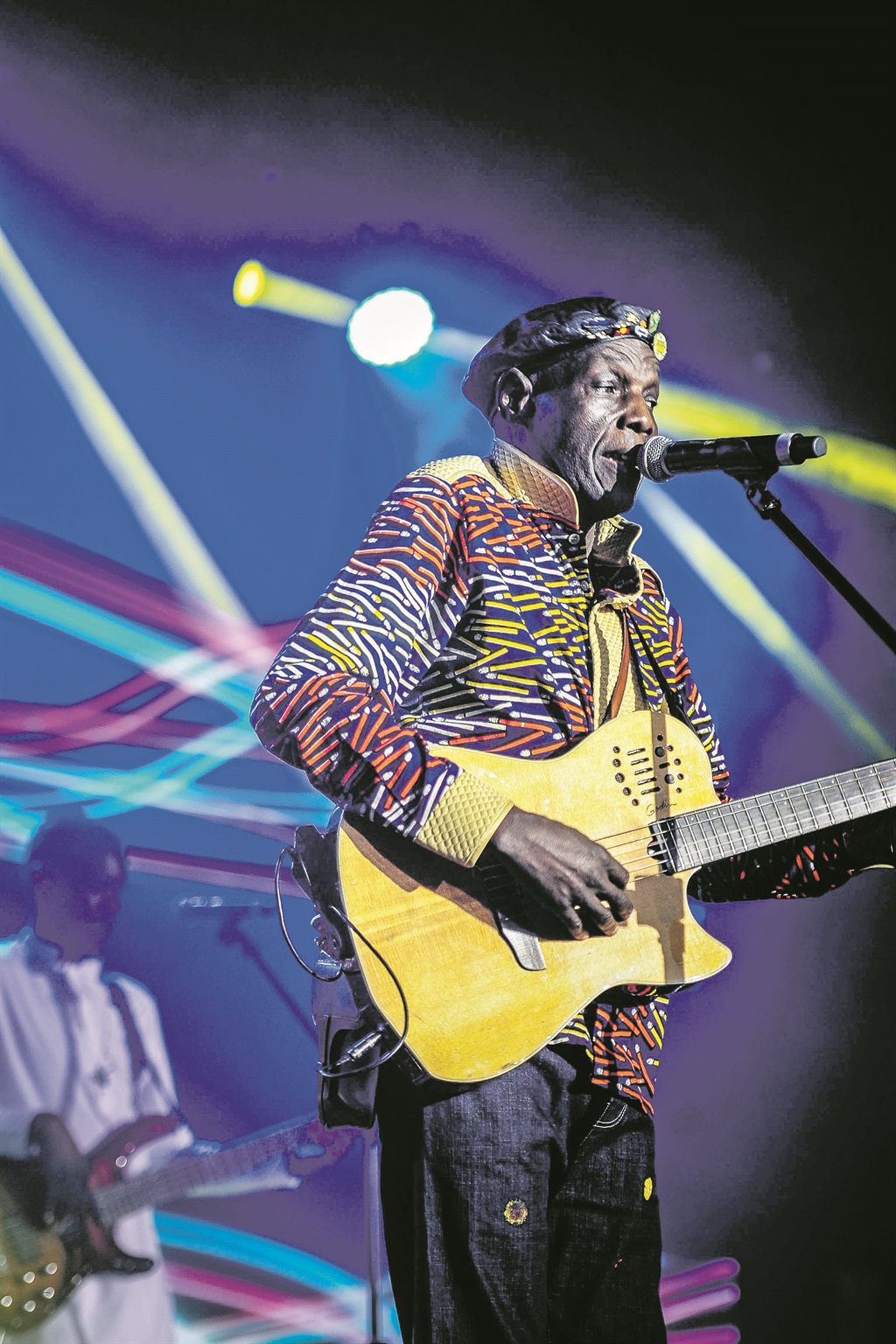
Oliver “Tuku” Mtukudzi was born in Harare on September 22 1952 and died on January 23 2019 – a year to the day after the death of fellow musician Hugh Masekela.
Mtukudzi was the eldest of seven siblings, and the early death of his father taught him harsh lessons about the struggle for economic survival – alongside the anti-colonial struggle. Harare’s black townships were at that time in a ferment of resistance against the settler regime, inspired by the independence of other African nations. This intensified after the then Rhodesia’s Unilateral Declaration of Independence under Ian Smith and the Rhodesian Front in 1965.
Rolling with the Wagon Wheels
Before he was 20, Tuku had picked up a guitar, and his talent as singer, player and composer of irresistible tunes rapidly made itself known. His first band was the Wagon Wheels, which included Thomas Mapfumo – almost a supergroup of young Zimbabwean players later to become stars.
Mtukudzi’s first big hit, when he was 23, was the 1975 Stop After Orange. After that, the albums began piling up, much of that early music on the Kudzanayi label. It began a discography that, by the time he died, stood at close to 70 albums. With the Wagon Wheels, Mtukudzi recorded the gold hit Dzandimomotera, a song in tribute to the Second Chimurenga.
By 1977, Mtukudzi had left the Wagon Wheels to helm the Black Spirits, the name of all the groups he subsequently led (apart from a two-year break from 1987 to 1989). Mtukudzi and Mapfumo told different stories about the split and the ownership of the band names – late 1970s and early 1980s Harare was a fluid, semiprofessional music scene where band names and personnel constantly shifted. However, Mtukudzi has acknowledged Mapfumo’s mbira-inspired soundscape as one influence on his own style.
He was also an innovator – the Black Spirits’ music drew from Shona mbira pop, South African mbaqanga, deep rural tradition, gospel and everything else he heard, including jazz.
A sound much bigger than jit
International commentators often label his sound jit (particularly after the success in 1990 of Zimbabwe’s first post-independence movie of that name, to whose soundtrack Mtukudzi contributed much). That style, however, had many fathers, including Robson Banda, the Four Brothers, Paul Matavire and the Bhundu Boys. And, like any genre label, it’s an oversimplification. Mtukudzi’s albums over the years have encompassed dazzlingly diverse identities beyond pop. Calling it simply “Tuku Music” fits far better.
Although much footage of that early music scene has survived, little of it is documented in detail. However, thanks to the enthusiasm of collectors, you can find compilations online.
With Zimbabwe’s independence in 1980 came Tuku’s album Africa and the hits Zimbabwe and Mazongonyedze. With independence came more freedom of movement, as well as continental and, later, international attention.
Solidarity and southern African sounds
By the time South Africa attained its own regime change, there were ears here more than open to Tuku Music. Ardent Pan-Africanists, returned exiles who’d heard the music on their travels, migrants from Mtukudzi’s homeland and simply people who appreciated damn good tunes with thoughtful words came together for his concerts in Johannesburg.
The old Melville Bassline was one of his early stages, as was the city’s Arts Alive Festival. In 1998, the Sheer Sound label released the Tuku Music album and, in the same year, Mtukudzi worked with South African saxophonist Steve Dyer (whom he knew from Dyer’s time in Zimbabwe) on the theatre project Mahube.
That expressed one of Mtukudzi’s (and Dyer’s) dearly held visions – for cultural unity across the continent, drawing on Africa’s own musical resources and inspirations.
Platforms and messages
Mtukudzi is better described as a social activist than a politician. His solidarity with the liberation struggle (ours, Zimbabwe’s and Africa’s) was unquestionable. Subsequently, he worked on projects speaking out about women’s rights, including in the film Neria, where he sings the title track with Ladysmith Black Mambazo; in a theatre production about the conditions of street children; and in multiple documentaries about Aids.
In 2001, he released the song Wasakara (You’re too old), interpreted by many as a coded appeal to then Zimbabwe president Robert Mugabe to retire gracefully. The song allegedly cost Mtukudzi a second honorary degree. But accessing platforms to talk about what mattered was always more important to him than holding a rigid party position. In 2016, he sang at the pro-Mugabe Million Man March.
A unifying legacy
Mtukudzi was a man who consistently built and crossed bridges in musical styles and across social and geographical divides. He gained massive international respect, working with artists as diverse as Joss Stone, Bonnie Raitt (who wrote the sleeve notes for Tuku Music), Baaba Maal, Taj Mahal and, among South Africans not already mentioned, The Muffinz, Sibongile Khumalo and Ringo Madlingozi.
That respect came not only because he made superb music, crafting songs that will live forever as classics, but because he was a consummate stage professional and because, with everyone he encountered, he was a straightforward, loving and compassionate human being.
Zorora murugare, Tuku.
For more of Ansell’s writing, go to sisgwenjazz.wordpress.com




 Publications
Publications
 Partners
Partners








